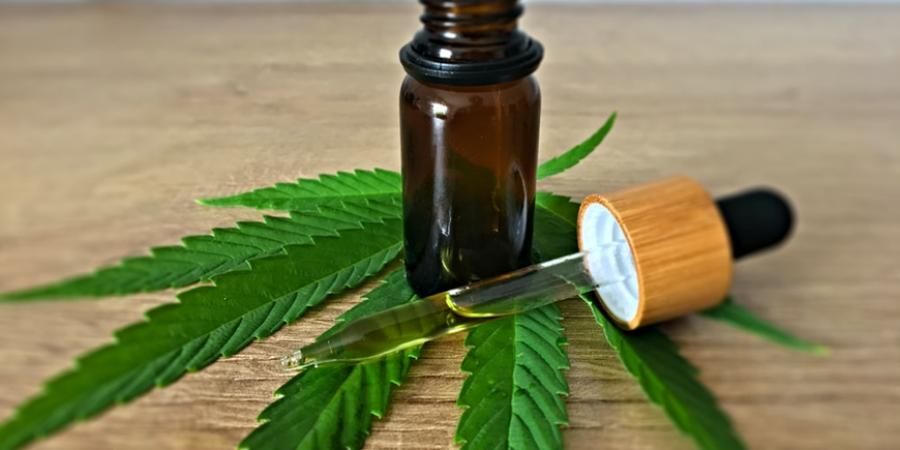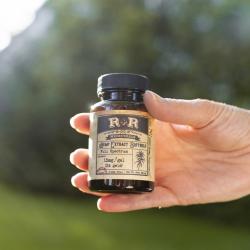10 Surprising Ways CBD Is Being Used Beyond Pain Relief

CBD, or cannabidiol, has taken the wellness world by storm. While many people are familiar with its potential for pain relief, there's a whole world of alternative uses that might surprise you. From skincare to pet health, CBD is making waves in unexpected areas. Let's dive into ten fascinating ways people are using CBD that go well beyond the usual pain management.
Calming Anxiety and Stress
We've all felt the weight of stress and anxiety at some point. But did you know that CBD might offer a natural way to find some calm in the chaos? Many users report feeling more relaxed and less anxious after using CBD products.
Here's the deal: CBD interacts with our body's endocannabinoid system, which plays a role in regulating mood and stress responses. While it's not a magic bullet, some studies suggest that CBD could help reduce anxiety symptoms, particularly in social situations. Some people use CBD in candles. Imagine feeling more at ease during that big presentation or family gathering – that's what some CBD users are experiencing.
But let's keep it real – everyone's different. What works for one person might not work for another. It's always a good idea to start small and see how your body responds. And remember, while CBD shows promise, it's not a replacement for professional mental health care if you're dealing with serious anxiety issues.
Sweet Dreams: CBD for Better Sleep
Tossing and turning all night? You're not alone. Sleep problems are all too common, and that's where CBD might come in handy. Some people are turning to CBD as a natural alternative to traditional sleep aids.
CBD might help improve sleep in a couple of ways. First, by reducing anxiety, it could help quiet that mental chatter that keeps you awake. Second, some research suggests CBD might interact with receptors involved in the sleep-wake cycle.
Users report falling asleep faster and enjoying more restful sleep. But here's the kicker – unlike some sleep medications, CBD doesn't usually leave you feeling groggy the next day. Imagine waking up feeling refreshed and ready to tackle the day, without that "sleep hangover" feeling.
Of course, good sleep hygiene is still crucial. CBD isn't a substitute for a consistent bedtime routine or a comfortable sleep environment. But for those struggling to catch some Z's, it might be worth considering as part of a holistic approach to better sleep.
Skincare Revolution: CBD for Your Complexion
Who would have thought that CBD would find its way into our skincare routines? Many people ask questions like: can I put CBD oil in my ear? Actually, with CBD-infused creams, serums, and masks popping up everywhere. And it's not just hype – there might be some real benefits to adding CBD to your beauty regimen.
CBD's anti-inflammatory properties are the star of the show here. Inflammation is at the root of many skin issues, from acne to eczema. By helping to calm inflammation, CBD might help soothe irritated skin and reduce redness. Some users even report improvements in acne breakouts after using CBD skincare products.
But it's not just about problem skin. CBD is also being touted for its potential anti-aging benefits. Some studies suggest it might help reduce the appearance of fine lines and wrinkles by combating oxidative stress. Plus, it's a natural moisturizer, helping to keep skin hydrated and supple.
Before you overhaul your entire skincare routine, remember that not all CBD skincare products are created equal. Look for products from reputable brands that provide third-party lab testing results. And as with any new skincare product, it's a good idea to do a patch test first to make sure your skin plays nice with CBD.
Epilepsy Treatment: A Breakthrough Use
Now, this is where things get really interesting. CBD has made significant strides in the medical world, particularly in the treatment of certain types of epilepsy. In fact, the FDA has approved a CBD-based medication called Epidiolex for the treatment of two rare and severe forms of epilepsy.
This is a big deal. For people living with these difficult-to-treat conditions, CBD has offered hope where traditional treatments have failed. Some patients have experienced a significant reduction in seizure frequency and severity after starting CBD treatment.
But let's be clear – this isn't about buying CBD oil from your local health food store and self-treating epilepsy. The CBD used in these treatments is pharmaceutical-grade and prescribed by doctors. It's a perfect example of how, when properly researched and applied, CBD can have profound medical benefits.
The success of CBD in treating certain forms of epilepsy has also opened doors for research into its potential for other neurological conditions. Who knows what other breakthroughs might be on the horizon?
Addiction Recovery: A Helping Hand
Addiction is a complex and challenging issue, but some researchers are exploring whether CBD might offer support in the recovery process. While it's not a cure-all, early studies suggest CBD could play a role in managing withdrawal symptoms and reducing drug cravings.
How does it work? CBD might help by reducing anxiety and improving sleep – two common challenges during addiction recovery. Some animal studies have even shown that CBD could help reduce the likelihood of developing cocaine and morphine use disorders.
But here's where it gets really interesting: CBD might also help with the underlying issues that often contribute to addiction. By potentially easing symptoms of anxiety, depression, and chronic pain, CBD could indirectly support recovery efforts.
It's important to note that this is still an area of ongoing research. CBD isn't a replacement for comprehensive addiction treatment programs. But for some people in recovery, it might be a useful tool in their toolkit, alongside therapy and other support systems.
Gut Feeling: CBD for Digestive Health
Our gut health affects so much more than just digestion – it's linked to our overall wellbeing, including mental health. That's why it's exciting that CBD is showing promise in supporting digestive health.
CBD's anti-inflammatory properties come into play here again. Conditions like inflammatory bowel disease (IBD), Crohn's disease, and ulcerative colitis are characterized by inflammation in the digestive tract. By helping to reduce this inflammation, CBD might offer relief from symptoms like abdominal pain and diarrhea.
But it's not just about managing symptoms. Some researchers believe CBD might help address the root causes of these conditions by regulating gut motility and reducing intestinal damage.
Even for those without chronic digestive issues, CBD might help with occasional tummy troubles. Some users report relief from nausea and general digestive discomfort after using CBD.
As always, if you're dealing with persistent digestive issues, it's crucial to work with a healthcare provider. But for those looking for natural support for their gut health, CBD might be worth exploring.
Matters of the Heart: CBD and Cardiovascular Health
When it comes to heart health, we're always on the lookout for natural ways to support our cardiovascular system. While research is still in its early stages, some studies suggest CBD might have potential benefits for heart health.
One area of interest is CBD's effect on blood pressure. High blood pressure is a major risk factor for heart disease, and some research indicates that CBD might help lower blood pressure, particularly in stressful situations.
CBD's anti-inflammatory and antioxidant properties could also play a role in heart health. Inflammation and oxidative stress contribute to the development of heart disease, so anything that helps combat these processes could potentially benefit cardiovascular health.
Some animal studies have even suggested that CBD might help reduce the damage to the heart and brain from a stroke or heart attack. While we can't extrapolate these results directly to humans, they're certainly intriguing.
It's important to note that CBD isn't a substitute for heart medications or a healthy lifestyle. But for those looking to support their heart health naturally, CBD might be an interesting avenue to explore under the guidance of a healthcare provider.
Neuroprotection: Shielding Your Brain
Our brains are pretty amazing, but they're also vulnerable to damage and degeneration. That's why the potential neuroprotective properties of CBD are so exciting. Some researchers believe CBD might help protect brain cells from damage and support overall brain health.
One area of interest is CBD's potential role in neurodegenerative diseases like Alzheimer's and Parkinson's. While we're still in the early stages of research, some studies suggest CBD might help reduce inflammation and oxidative stress in the brain, potentially slowing the progression of these diseases.
But it's not just about preventing decline – CBD might also support cognitive function in healthy brains. Some users report improved focus and clarity after using CBD. While these reports are anecdotal, they're certainly intriguing and warrant further research.
CBD's potential neuroprotective properties might also extend to protecting the brain from the effects of injury or stroke. Some animal studies have shown that CBD could help reduce brain damage and improve recovery after a traumatic brain injury or stroke.
While we need more research to fully understand CBD's effects on the brain, the early results are promising. It's an exciting area of study that could have far-reaching implications for brain health.
Paws and Effect: CBD for Pet Wellness
It's not just humans who might benefit from CBD – many pet owners are turning to CBD to support their furry friends' health and wellbeing. From aging dogs with joint pain to cats with anxiety, CBD is making its way into the world of pet care.
Many of the potential benefits of CBD for humans could apply to animals too. Pet owners report using CBD to help manage their pets' anxiety, reduce pain and inflammation from conditions like arthritis, and even control seizures in some cases.
For example, CBD might help calm a dog who gets anxious during thunderstorms or when left alone. Or it could provide relief for an older cat struggling with joint pain. Some pet owners even report improvements in their pets' skin conditions after using CBD-infused pet products.
Of course, it's crucial to remember that animals can react differently to substances than humans do. Always consult with a veterinarian before giving your pet CBD, and make sure to use products specifically formulated for animals. The dosage and concentration of CBD for pets are different from human products.
While research on CBD for pets is still in its early stages, many pet owners swear by its benefits. As with humans, it's not a miracle cure, but it might be a useful tool in supporting your pet's overall health and happiness.
Mood Boost and Creativity Spark
Here's something you might not expect – some people are turning to CBD as a way to enhance their mood and boost creativity. While it might sound a bit out there, there's some logic behind it.
CBD interacts with the endocannabinoid system, which plays a role in regulating mood. By potentially helping to balance this system, CBD might contribute to a more stable, positive mood. Some users report feeling more relaxed and centered after using CBD, which could indirectly support creative thinking.
Moreover, by potentially reducing anxiety and promoting better sleep, CBD might help create the conditions for creativity to flourish. After all, it's hard to think creatively when you're stressed out or sleep-deprived.
Some artists and writers report using CBD as part of their creative routine, claiming it helps them focus and tap into their creative flow. While these reports are anecdotal, they're intriguing enough to warrant further exploration.
It's important to note that creativity is complex and highly individual. What works for one person might not work for another. But for those looking for natural ways to support their mood and creative endeavors, CBD might be worth considering.
Wrapping It Up
From soothing anxiety to potentially protecting our brains, CBD is showing promise in a wide range of areas beyond pain relief. While many of these uses are still being researched, the potential is exciting.
According to CBD experts who write for us on CBD, CBD isn't a miracle cure or a replacement for medical treatment. Always consult with a healthcare professional before starting any new supplement regimen, especially if you're taking other medications.
As research continues, we're likely to learn even more about the potential benefits and uses of CBD. Who knows what other surprising applications we might discover in the future? The world of CBD is constantly evolving, and it's an exciting field to watch.
Whether you're considering CBD for yourself, your pet, or just curious about its potential, stay informed and approach it with an open but critical mind. After all, when it comes to our health and wellbeing, knowledge is power.
More to Read:
Previous Posts:






